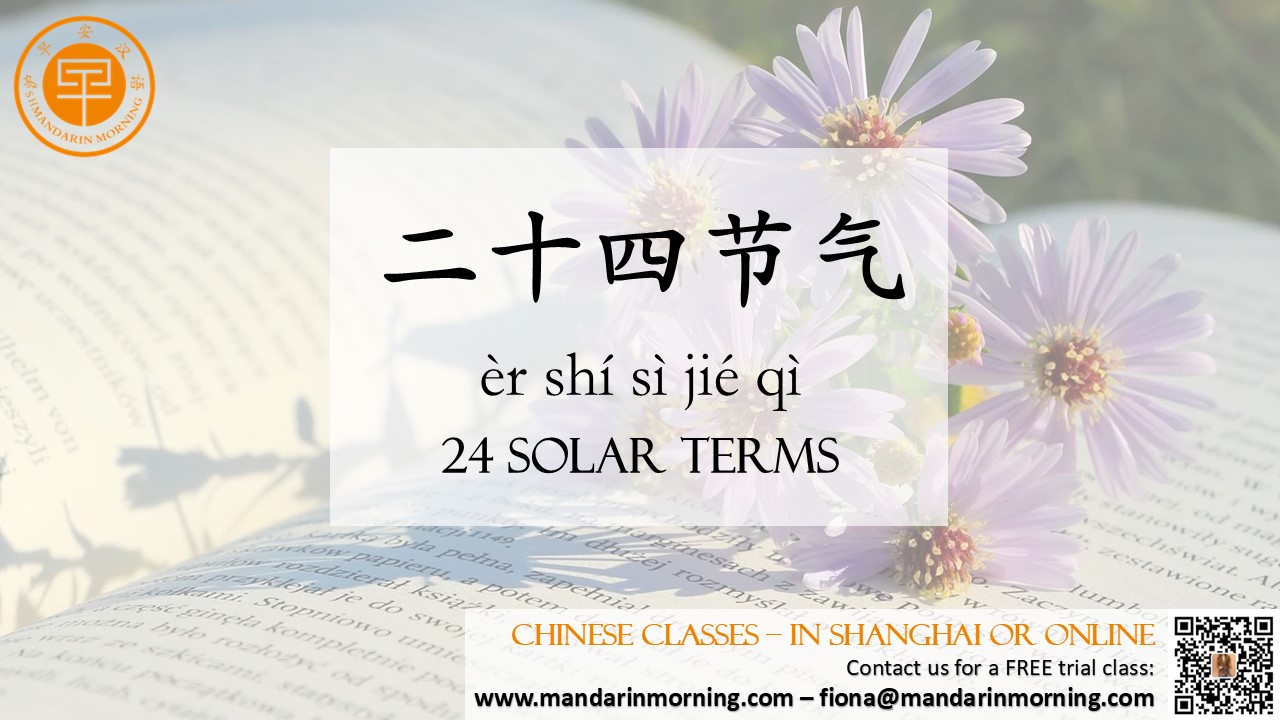【Learn Chinese】Exploring the 24 Solar Terms |
| The 24 Solar Terms (二十四节气, Èrshísì Jiéqì) are a traditional Chinese system that divides the year into 24 distinct periods, each approximately 15 days long. This ancient agricultural calendar is a testament to China's rich history and its deep connection with the natural world. It not only guides farming practices but also influences Chinese culture, festivals, and even daily life. Let's delve into the significance of these solar terms and how they shape the Chinese way of life.  The Origin and Purpose: The 24 Solar Terms originated during the Warring States period (475-221 BC) and were further refined during the Han Dynasty (202 BC - 220 AD). They were developed to help farmers plan their agricultural activities based on the changes in climate and the position of the sun. Each term corresponds to a specific phase in the agricultural cycle, such as planting, growing, and harvesting. Key Solar Terms: Start of Spring (立春, Lìchūn): Marking the beginning of spring, this term signifies the awakening of nature and the start of the farming season. Vernal Equinox (春分, Chūnfēn): Day and night are approximately equal in length, and it's a time when spring is in full bloom. Start of Summer (立夏, Lìxià): The transition from spring to summer, indicating the start of the hot season. Summer Solstice (夏至, Xiàzhì): The longest day of the year, when the sun is at its highest point in the sky. Start of Autumn (立秋, Lìqiū): The beginning of the harvest season and the transition from summer to autumn. Autumnal Equinox (秋分, Qiūfēn): Similar to the Vernal Equinox, day and night are equal in length, and it's a time of harvest. Start of Winter (立冬, Lìdōng): The onset of winter, signaling the start of the cold season. Winter Solstice (冬至, Dōngzhì): The shortest day of the year, when the sun is at its lowest point, and a time for family gatherings. Cultural Significance: Each solar term is accompanied by traditional customs and practices. For instance, during the Vernal Equinox, it's customary to fly kites (放风筝, Fàng fēngzheng), while the Winter Solstice is celebrated with family feasts featuring dumplings (饺子, Jiǎozi) or wontons (馄饨, Húntun), symbolizing unity and warmth. Agricultural Guidance: The 24 Solar Terms provide crucial guidance for farmers. For example, the term Grain Rain (谷雨, Gǔyǔ) suggests it's the perfect time for planting crops like rice and millet due to increased rainfall. On the other hand, the term Cold Dew (寒露, Hánlù) indicates the start of a colder period, reminding farmers to protect their crops from the chill. Despite modern advancements in agriculture and weather forecasting, the 24 Solar Terms continue to hold relevance. They serve as a reminder of the harmony between humans and nature and the importance of living in sync with the environment. Conclusion: The 24 Solar Terms are more than just a calendar; they are a cultural compass that has guided Chinese society for millennia. They embody the wisdom of ancient Chinese sages and the rhythm of the natural world. As we continue to navigate the complexities of modern life, these ancient terms offer a timeless connection to the cycles of nature and a reminder of the beauty in the changing seasons. |